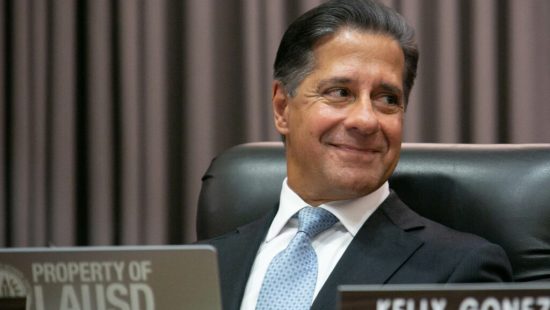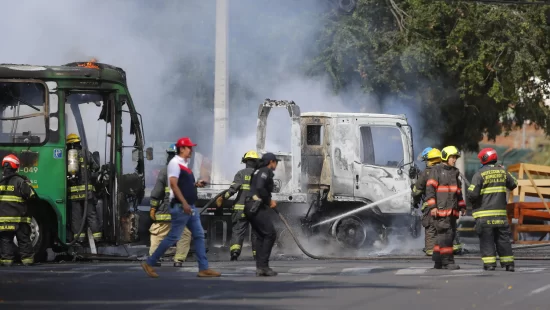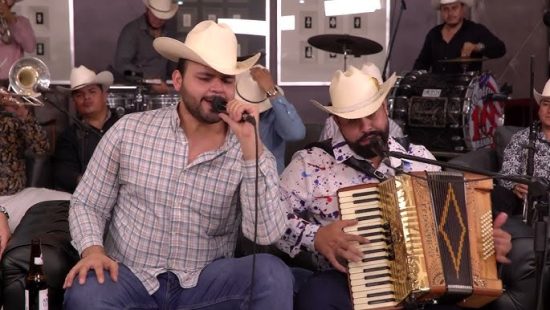Her activism has led her to appear in different scenarios, political, social, and community. She doesn’t mind fighting to achieve minimum or good results, for her, hope is something that fills her with vitality. (credit @eastloshearts)
She might have been five, maybe six years old. Ángela Gonzales-Torres watched one of her uncles hide in a corner of her house to smoke.
The girl observed, wondered why he did it, needed to answer that elementary question, ‘Why did he do it?’
“I needed to understand it, to hear why he consumed a cigarette that would later kill him. And so it was, he died of lung cancer,” says this activist, anthropologist, photographer, counselor, and president of the Highland Park Neighborhood Council, among many other things.
“I’ll be online in a few minutes,” she wrote just before the interview. She was coming from her yoga class and would be a little late.
Smiling, she sits in front of the computer or phone, I didn’t ask her.
“I found a bilingual class near my house and it’s perfect for me,” she adds.
I don’t know where to start, I confess to her.
Angela is what could be called a polyactivist. She cares about social justice, social causes, the community. One day she could be seen discussing evictions, other times, the gentrification of Latino neighborhoods or the conflict in Gaza, the prison community, or access to education.
“I could summarize it, simply, that I am concerned about people having access to the most basic needs, such as being under a roof and having food. I don’t understand how society, with the housing crisis we have, accepts that many people have two or three houses and others, none. I see it in front of my house. One neighbor has a second house here and another runs an Airbnb. Both are almost always empty while people struggle for a place to sleep or are on the streets,” says the anthropologist.
My research is in family separation systems being incarceration, immigration, and gentrification. I am grateful to the community I have built through Pasadena City College and UCLA, and of course in my neighborhood Highland Park.(Angela Gonzales-Torres)
She grew up alongside three sisters, her father was deported when she was a child, and her mother took charge of the house and its sustenance.
“My basic needs were not always met growing up but I can say I had a happy childhood. Now that I think about it, I love that I grew up in a house with women, with my mother in charge,” she says.
She could have taken many paths, but she chose the one that marked her with that elementary question, ‘why?’
Being that her generation are somewhat heirs of the Chicano movement, she was always interested in participating in social movements, volunteering in organizations that offered her that growth of her social spirit.
“I’m interested in knowing the process of how decisions are made, how they impact me and others. In my neighborhood, in the way I grew up, we were exposed to gangs, homelessness, and violence but also struggle and hope. I was never part of any group but I knew I cared about social causes. I was interested in being a filmmaker, but opted for an interest in documentaries, and now see photography as a tool to show the reality of a story, of our social situation,” she adds.
For Angela, the housing problem is serious, she doesn’t understand why they deny it in this society, deny that housing is a right of people, not a luxury.
Her activism has led her to appear in different scenarios, political, social, and community. She doesn’t mind fighting to achieve minimum or good results, for her, hope is something that fills her with vitality.
“I got into the Neighborhood Council because I thought it would be easier to open communication channels with politicians, but that hasn’t been the reality. It’s very difficult to reach certain politicians, even though they represent us. It seems that they are not interested in discussing the problems of the community and finding solutions. Also, it seems that there are many people or organizations fighting for the same thing, but other times, it seems like we’re fighting among ourselves,” she says.
That persistence in her struggle comes in part from her memories, from all those people who fought and have fought since she was a child.
“There were others who were there. Now I want to do my part. I know it’s not simple but everything is connected. Gentrification brings an increase in rents, in evictions, in the construction of entertainment venues aimed at those people who are arriving. We have to fight, demand solutions, and, above all, not excluded our people. Many try to devalue me, perhaps because of the color of my skin, my profession, or my income—I don’t know—but I don’t care, they won’t take me out of the discussion,” she adds.
For her, it is important to ensure that her community is not ignored, even if they don’t treat it as equal many times.
“If the politicians who represent us don’t listen to us, we have to find the answer to be heard or have other people represent us. That’s what we’re working on because we deserve better,” she concludes.








